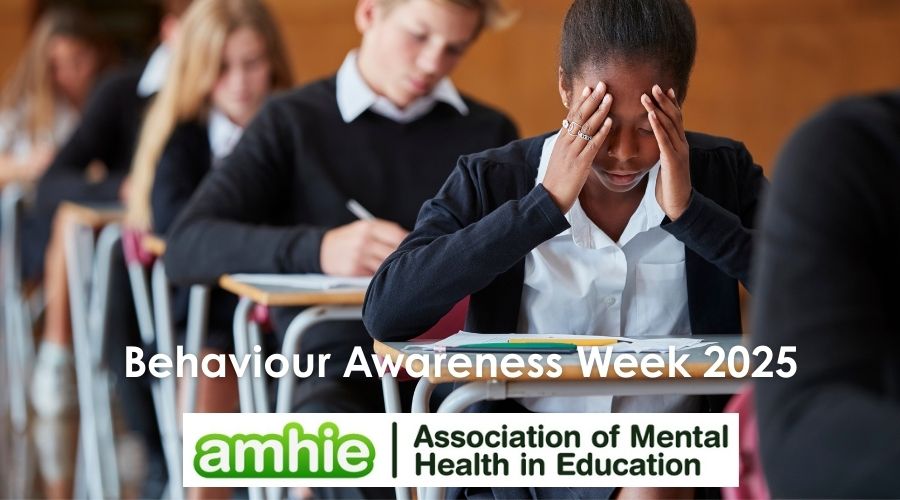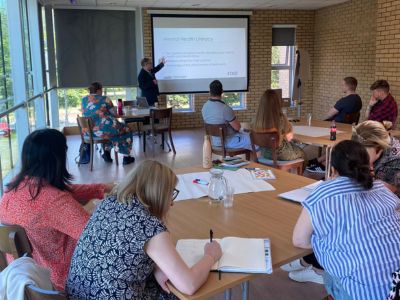
For behaviour awareness week let’s talk about practical strategies for managing your class
Beyond the Behaviour: A Practical Guide to Nurturing a Positive Classroom Environment
Experienced educators know that a positive classroom environment is the bedrock of effective learning. This guide moves past the basics of classroom management to offer practical, nuanced solutions for the common behavioural challenges we all face. It’s about looking beyond the surface-level disruption to the root cause, and equipping yourself with the strategies to respond with empathy, consistency, and a clear purpose.
Foundational Strategies: Relationships and Reinforcement
Effective classroom behaviour isn’t about control; it’s about connection. The most successful teachers build a culture where students feel safe, valued, and understood.
- Positive Reinforcement. While seemingly simple, using positive reinforcement is highly effective, even with secondary school students. It’s about more than just a sticker chart. Actively seek out opportunities to praise effort, hard work, and good achievements. This isn’t just about rewarding an individual; it’s about modelling the behaviour you want to see, encouraging others to follow suit.
- Focus on Strengths. When a student is struggling, avoid getting bogged down in what’s going wrong. Instead, focus on their strengths and solutions. What are they good at? What resources can you leverage to help them find their way? This shifts the dynamic from a deficit-based model to one of empowerment.
- Prioritise Wellbeing. A student’s behaviour is inextricably linked to their overall wellbeing. Promoting resilience, a sense of belonging, and social-emotional learning can dramatically reduce behavioural issues. When students feel secure and connected, their capacity for self-regulation increases.
Communication and Role Modelling
Your presence and communication style are your most powerful tools. How you interact with your students directly influences how they interact with you and with each other.
- Be a Positive Role Model. It sounds basic, but it’s crucial. Lead by example. Be on time, be organised, and demonstrate the respectful conduct you expect from your students.
- Communicate with Calm Consistency. Your tone matters. Instructions are more likely to be followed when delivered calmly and positively. Avoid shouting, which signals a loss of control, and never use sarcasm, as it can be toxic and undermine your authority, especially with students you don’t know well.
- Know Their Names. A simple but profound gesture. Remembering a student’s name shows respect and makes every interaction more personal and impactful. This small effort can significantly improve order and rapport.
- Maintain Consistency. Students need predictability. If you always follow through on sanctions or boundaries, students learn to trust the system. The certainty of a consequence is far more important than its severity.
Practical Interventions and Proactive Prevention
Beyond the day-to-day, a proactive approach can prevent many problems from ever occurring. This means structuring the environment and having a clear plan for when things get difficult.
- Establish a Code of Conduct. Involve your class in creating a framework of boundaries. Simple rules like “Be respectful” or “Show kindness” can be posted on the wall. When students help devise the code, they’re more invested in upholding it.
- Use a Quiet Area. Establish a dedicated “calm-down space” in your classroom. This is not a punishment area; it’s a comforting space where a student can take a moment to reflect and recover when they feel overwhelmed.
- Address Difficult Behaviour Privately. Take pupils aside to address serious issues. Without an audience, they’re often more receptive and less likely to become defensive.
- Engage with Active Learning. A common cause of poor behaviour is boredom and disengagement. Employing differentiation and active learning techniques can help maintain student interest and prevent challenging behaviour before it starts.
Leveraging School and Colleague Support
Remember that you are part of a wider ecosystem. You are not alone in this.
- Work as a Team. When facing a serious behavioural issue, don’t hesitate to summon help from a colleague. When teachers present a united front, students are more likely to defer to the consistent presence of adults.
- Utilise School Policy. Know your school’s behaviour policy and use the established line management structure. Leaning on your colleagues and the school’s framework provides confidence and crucial support.
Additional information and advice:
Nudge Education – At Nudge Education, we are committed to building a world where no young person is left behind. The reality is that more children and young adults are becoming chronically disengaged from education.
We exist for young people who need help the most. Our holistic approach is bespoke to each young person. Nudge Practitioners work 1:1 or 2:1 with our young people at home, in school or within the community to help them meet their Transition Target. We embed our 6 cornerstones for positive wellbeing (connection, movement, nutrition, creativity, rest and reflection) in every session, alongside individualised academic support, to prepare them for a Life Worth Living.
Cambridge Universities Varinder Unlu’s blog post ‘Managing disruptive behaviour in the classroom‘ Cambridge University offer a range of informative and free blog posts in their better learning area.
Child Mind Institute’s blog post ‘How can we help kids with self-regulation‘. The Child Mind Institute is a global non-profit working to transform children’s mental health.
EdPsychEd’s blog post ‘4 key strategies for supporting emotionally based school avoidance‘. EdPsychEd are a team of Educational & Child Psychologists, each with unique specialisms and experiences who share the same goal: achieving the best, most accessible and impactful training courses for Psychologists and School Staff that there can be.
Resources, Podcast and Webinar from Great Minds Together – https://greatmindstogether.co.uk/behaviour-awareness-week
Gain tools, resources and clarity on behaviour with AMHIE Training

Achieve mental health excellence and secure outstanding inspection outcomes with AMHIE’s DfE-aligned training. We equip your whole-school team, from leaders to support staff, with certified competence and a robust mental health strategy.
Your ROI is clear: You move beyond reactive support, gain the tools to effectively document and evidence provision for Ofsted, and build a unified, confident team. Join over 1,500 trained Mental Health Leads who rate our expert-led courses 9/10 on average.
Ready to confidently meet DfE and Ofsted expectations? Explore the full AMHIE training offer and secure your team’s place today: Visit the AMHIE Training Page

